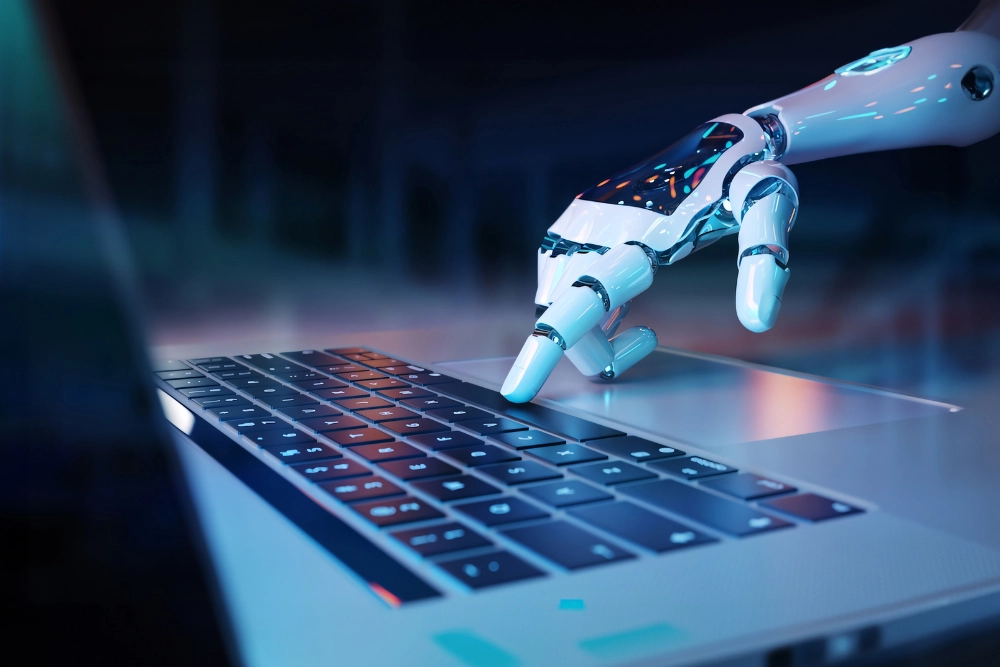Artificial Intelligence is a double-edged sword when it comes to its impact on jobs. On the one hand, it has the potential to revolutionise industries, boost productivity, and create new job opportunities in AI development and related fields. On the other hand, it can lead to job displacement, skill mismatches, ethical concerns, and economic disparities.
The Negative Effects of AI on Jobs
Job Displacement:
One of the most prominent and oft-reported concerns regarding AI is its potential to displace certain job roles. Jobs that involve repetitive, rule-based tasks are at risk of being automated. This includes positions in manufacturing, data entry, and customer service. While this displacement can lead to increased efficiency, it can also result in job loss for many workers.
Skill Mismatch:
As AI continues to advance, the skills required to thrive in the job market are evolving. Workers who lack the necessary skills to interact with or manage AI systems may face difficulties in finding employment. This “skill mismatch” can lead to unemployment or underemployment for some individuals.
Ethical Concerns:
AI’s rapid development has raised ethical questions about privacy, security, and the potential for biased decision-making. This has given rise to the need for new roles, such as AI ethicists and compliance officers, but also poses challenges for those whose jobs are affected by AI’s ethical considerations.
Economic Disparities:
The benefits of AI adoption are not evenly distributed. While some industries and regions thrive, others may suffer economic decline due to job displacement. This can exacerbate economic disparities and lead to social inequality.
Expensive to implement and maintain:
The machinery and software needed for AI systems can be hugely expensive and the technology advances rapidly. The hardware and software needs to be updated regularly. Machines need repairing and maintaining which has plenty of associated costs.
Lack of human touch
AI, while excelling in data analysis and automation, lacks the crucial human touch and emotional intelligence necessary for certain tasks. Industries relying on human interaction, like healthcare and counselling, may struggle to replace human expertise and empathy with AI systems. Machines may be efficient, but they cannot replicate the essential human connection and bonding required, particularly in team management.
However, it’s not all negative. The positive effects of AI on jobs include:
Automation of Routine Tasks
One of the most significant positive impacts of AI on jobs is its ability to automate routine, repetitive tasks. AI-powered robots and software can perform these tasks with high precision and efficiency. As a result, employees are freed from mundane duties and can focus on more creative, complex, and value-added aspects of their work.
Reduction in Human Error
When effectively programmed, Artificial Intelligence (AI) offers a significant opportunity to substantially eliminate human errors and enhance accuracy and precision. For example, its application in robotic surgery systems. These systems can execute intricate medical procedures with remarkable precision and accuracy, significantly lowering the likelihood of human error. This not only advances patient safety within the healthcare sector but also underscores the potential of AI to revolutionise various domains through error reduction.
Increased Productivity
AI tools can analyse vast amounts of data and provide insights that humans might miss. This boosts productivity by helping employees make more informed decisions. In many industries, AI-driven automation accelerates production processes, leading to increased output and economic growth.
Job Creation in AI Development
The development, maintenance, and improvement of AI systems have created a growing demand for skilled professionals in AI-related fields. This has led to the creation of new job opportunities, from AI researchers and data scientists to AI ethicists and AI system trainers.
Enhanced Safety
AI-driven technologies have the potential to make workplaces safer. Robots and AI systems can handle dangerous tasks in industries such as mining, construction, and healthcare, reducing the risk of injuries to human workers.
Available all day every day
Humans need breaks and time off to strike a balance between their professional and personal lives. Conversely, AI operates tirelessly without the need for breaks. For instance, online customer support chatbots harness AI and natural language processing to deliver instant assistance to customers regardless of the time or location. They can easily address common queries, resolve issues, and can even escalate complex matters to human agents, ensuring uninterrupted customer service around the clock.
The impact of AI on jobs is a complex issue with both positive and negative repercussions but its impact on the global industry is undeniable. It is essential to recognise and address the potential drawbacks and there is certainly a need for AI training and upskilling in all workplaces and industries but, with the right foundations, organisations can harness AI’s potential while ensuring a smooth transition for their workforce.




